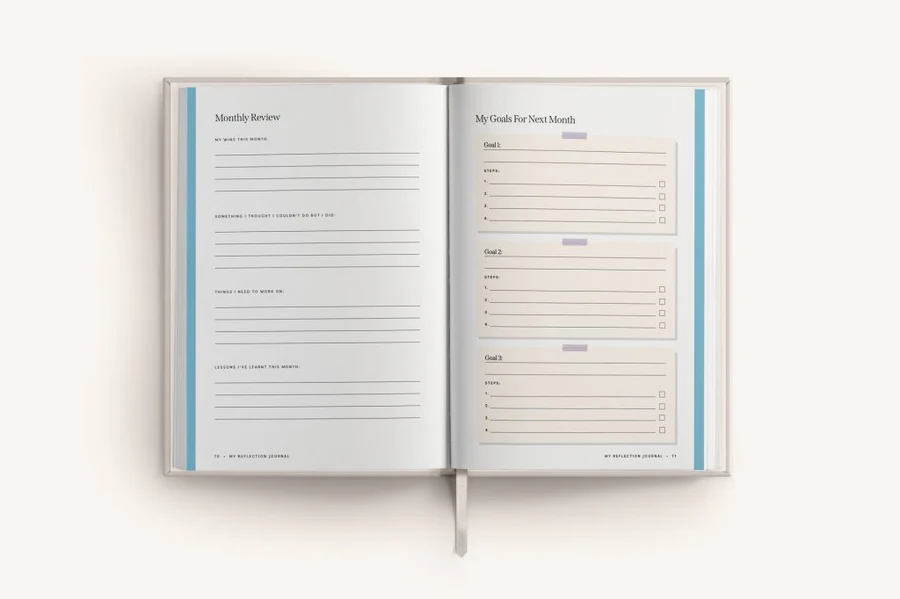Journaling ideas for self-growth
In today’s fast-paced world, taking time to reflect on your thoughts, emotions, and experiences is more important than ever. One of the most effective ways to achieve this is through journaling. Journaling is not just about putting words on paper; it is a powerful tool for self-growth, helping you understand yourself better, process emotions, set goals, and track personal development. If you’re looking for ideas to make journaling an impactful habit, here are several approaches to explore.
1. Daily Reflection Journaling

One of the simplest yet most effective journaling practices is daily reflection. This involves writing about your day, your feelings, and any events that stood out. You can start by noting three things you are grateful for, which fosters positivity and mindfulness. Then, reflect on challenges you faced and how you responded to them. This helps identify patterns in your behavior and thoughts, providing insight into areas where you can improve. Daily reflection builds self-awareness, a key component of personal growth.
2. Goal-Oriented Journaling
Another powerful journaling technique is focusing on goals. Begin by listing your short-term and long-term goals. Then, break these goals into actionable steps and track your progress regularly. Journaling about your goals helps clarify your vision, stay motivated, and hold yourself accountable. Additionally, writing down obstacles and strategies to overcome them encourages problem-solving and resilience, which are essential traits for personal development.
3. Emotional Journaling
Processing emotions is crucial for mental and emotional well-being. Emotional journaling involves writing freely about your feelings, without judgment or censorship. You might explore questions like: “What am I feeling right now?” or “Why did this event affect me so deeply?” This type of journaling allows you to release pent-up emotions, identify triggers, and develop healthier coping mechanisms. Over time, emotional journaling can increase emotional intelligence and reduce stress, enhancing overall self-growth.
4. Self-Discovery Journaling

Self-discovery journaling helps you explore your values, beliefs, strengths, and weaknesses. This can include writing prompts such as: “What are my core values?” or “What are my greatest strengths and areas for improvement?” Another approach is to write letters to your past or future self. By exploring who you are at a deeper level, you gain clarity about your purpose, passions, and the direction you want to take in life. Self-discovery journaling promotes introspection and encourages conscious decision-making.
5. Creative Journaling
Journaling doesn’t have to be limited to words. Creative journaling incorporates drawing, doodling, collages, or even mind maps. This type of journaling allows for self-expression in unique ways and can be particularly helpful when words are insufficient to capture complex emotions or ideas. Creative journaling stimulates the brain, enhances imagination, and encourages innovative thinking—all of which contribute to personal growth.
6. Gratitude Journaling
Gratitude journaling is a widely recommended practice for increasing happiness and mental clarity. Each day, list things you are thankful for, no matter how small. This habit shifts your focus from what is lacking to what is abundant in your life, fostering a positive mindset. Over time, gratitude journaling can improve relationships, reduce anxiety, and cultivate resilience, all of which are vital components of self-growth.
7. Reflective Prompts and Challenges

Sometimes, it can be challenging to know where to start. Using reflective prompts or taking journaling challenges can provide guidance. Prompts such as “Describe a challenge you overcame recently” or “What does success mean to you?” encourage deeper thinking. Challenges, such as journaling for 30 days consecutively, help build discipline and make journaling a consistent practice. These methods keep journaling fresh, engaging, and growth-oriented.
8. Tracking Personal Progress
Lastly, journaling can serve as a record of your personal development journey. By periodically reviewing your journal entries, you can see how far you’ve come, recognize patterns, and celebrate achievements. Tracking progress not only boosts motivation but also reinforces self-awareness and personal accountability. It reminds you that growth is a process, often gradual, and encourages you to keep striving for improvement.
Conclusion
Journaling is a versatile and powerful tool for self-growth. Whether through daily reflections, goal tracking, emotional exploration, self-discovery, creative expression, gratitude practices, or reflective prompts, the act of putting thoughts on paper helps you understand yourself better and grow consciously. The key is consistency and openness—allowing yourself to write honestly, without fear of judgment. By integrating these journaling ideas into your routine, you can cultivate self-awareness, emotional resilience, and personal development, ultimately leading to a more fulfilling and intentional life.


Post Comment